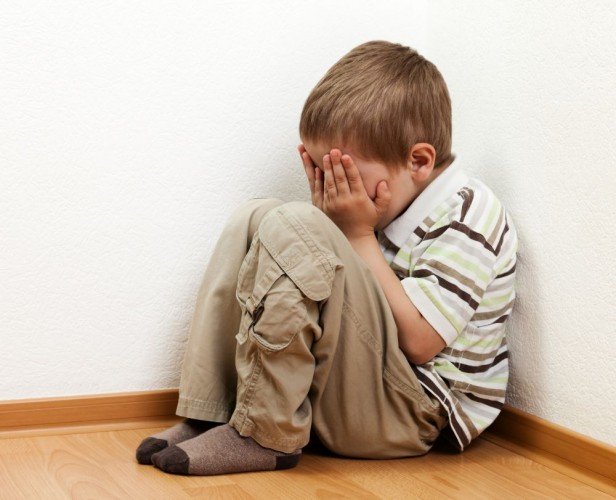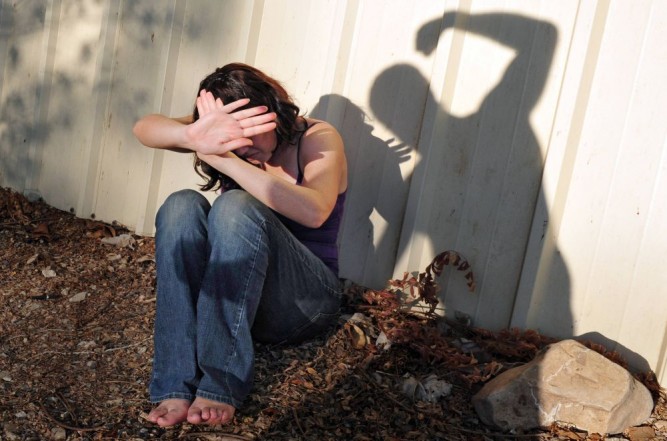Eight things to know about violence

- More than physical violence
Beyond physical violence, there is psychological or emotional abuse - intimidation, threats, injuries, or extreme nervousness: the aggressor throws, slames, breaks ... This form accompanies all other forms of violence, directly or implicitly, for the victim's psychic state; has long-term impact and requires long-term therapy and counseling.
What is important is that there are chances of success: victims can go beyond the state they are in, they can continue their lives, and in the future they can enter into an abusive relationship.
From 2003 until now, we only had two cases where the victims returned to the abusive environment. Social violence refers to the isolation of the victim by anyone who would provide support and information to help him out of this situation. Financial violence means the situation where the money resources of the family are exclusively in the hand of the aggressor, the victim being totally dependent on him.
And there is another form of violence, the sexual one, which involves both forced sexual acts and, on the other hand, vulgar and vulgar words with sexual temptation. About this type of abuse, women talk hardest in counseling sessions.
- Education and well-being do not exclude violence
The higher the level of education, the more violent the forms of violence can be more veiled and refined. Predominantly strong emotional abuse. In addition, at a higher social level, both the victim and the aggressor defend an image - an individual image and a couple - and then it is even more difficult to disclose such a conflict situation.
- A violent man can change?

The family aggressor can display in society a picture of an impeccable person, showing aggressive behavior in the private environment, which makes it difficult to unmask. He does not assume the responsibility of the facts, but blame an external factor on his will, usually on the victim's challenge.
Both the victim and the society contribute to this. The victim, because she takes the point of view of the aggressor as guilty. The society, because it finds the aggressor with excuses and justifications or minimizes the seriousness of the situation. The aggressor can change only if he accepts that there is something wrong with his behavior and he wants to change it.
Most of the time, he does not recognize that he has a problem, so he does not want to change anything. What works in developed societies is a legal framework that forces an aggressor to attend psychological counseling sessions.
The presence of the psychologist on his own will is less likely. Couple counseling in cases of domestic violence is not recommended: the victim will not be able to talk openly in the presence of the aggressor.
- What are the alarm signals that predict a violent relationship?
The key word is "control": it is a person in a position of power and a submissive (obedient) person. When you feel that something is wrong in the relationship, perhaps that is: intuition does not lie. If it puts you in unpleasant public situations, if it shows unjustified jealousy, if you systematically ask for money, it is not advisable to build a relationship on such bases.
The first violent couple events occur around the age of 16. When your friend searches for your phone or checks your emails, when you push for sexual intercourse, though you feel it is not his time to consume them, threatens to tell your family or the whole school if you break up by him - in all these situations the relationship is not based on respect and no true love is.
If, when he gets angry, he punches his fist in the walls, breaks and throws objects, then you can expect the next target of his anger to be you.
- Violence over children

It has less attention, because it hides under the guise of education, good intentions. Children find it more difficult to ask for help. Not only because they lack the autonomy of action, but that may be the only reality they are reporting. All the more they see a lot of violence around them - between parents, at school, on the street, on television ...
They may find that this is the only way to resolve conflicts. Our work with home-grown children is very different from adult-related, because a child will not know how to put the drama that lives at home.
The techniques we use to work with these children appeal to the game. What many do not accept is that annoyance and conflict are normal, that they must not necessarily lead to the destruction of the relationship.
If we accept that such situations are natural, and the difference we make when we know how to express our negative emotions, I think things would sit. If we talk about our state, if we explain what we feel and listen to, it would not come to violence.
- How can victims of domestic violence benefit from aid?
In our victims, we get information from the Internet, from other people who have benefited from our services, from the police, from the Institute of Forensic Medicine or from the emergency services of the hospitals.
In the first phase, the victim will give a phone call here to make a schedule: we want to avoid long queues and have a time span dedicated exclusively to a person. First, she meets a social assistant who makes an initial assessment of the case. I am interested in a series of victim identification data, part of the history of abuse, because there may be collateral victims: children, other family members at the same residence.
We also seek to form a support network, identify people to help and support it in the near future. We determine the degree of danger they are in and we make a safety plan: who can call, who can address, why it's important to call 112, get a medicolegal certificate (which we offset) if it is aggrieved , file a complaint with the police and take a registration number.
All this is being discussed at a first meeting. We always respect the rhythm and the choices of the person.
After providing a victim's safety plan, they opt for one or more services available to them in the foundation: social counseling (including job-finding support), psychological counseling and legal advice (to obtain a order for protection, for divorce proceedings). As soon as she asks for a service, programming is immediately made. There is a meeting with each of the specialists, according to the requests, and each individual work plan will be done.
- Hosting in the Recovery Center
From the first meeting with the social worker, the victim can request hosting at the Recovery Center (shelter). Here, hosted people self-handle and receive a number of social vouchers depending on the number of children accompanying them. The room is individual - the occupant can lock it in, has privacy, can keep the property there. The Recovery Center hosts for a period of between 3 and 6 months, but if necessary, this period may be prolonged. The most important criterion for making this decision is the degree of danger the victim and her children are.
Locations of this kind of shelter are always secret. The protection and quick intervention of security agents, even the simple operation of a panic button that everyone has in the room, is ensured. Since 2003, there has been only one case in which the shelter was discovered and such an intervention was necessary.
8.Mothers with children should report child protection
Whenever the mother intends to leave home with her children, she is directed to address the Child Protection Directorate at home and to expose her situation and her intention to go to a recuperation center.
For this, a certificate may be issued stating that the mother has addressed and is under the protection of the foundation.
It is good for the mother to inform the police, if it is reported by the aggressor father or people who do not know the real situation.
We do not discourage the father from contacting children, but only to the extent that the mother and the children agree in a public space and, if necessary, under the supervision of a representative of the Child Protection Department, the authority patronizing the activities with regard to minors. In no case will the shelter address be revealed.
What ensures the success of any gesture of help is not to control the victim and not to replace the one who has controlled his life so far. She needs to know that she can request information and services here, that they are free of charge, that the choices are hers and that no one will force her to do anything but what she wants and at what she thinks fit.
img credz: pixabay.com
Nice, you got a 20.0% @davidding upgoat, thanks to @yerdna87
Want a boost? Minnowbooster's got your back!
The @OriginalWorks bot has determined this post by @yerdna87 to be original material and upvoted(1.5%) it!
To call @OriginalWorks, simply reply to any post with @originalworks or !originalworks in your message!